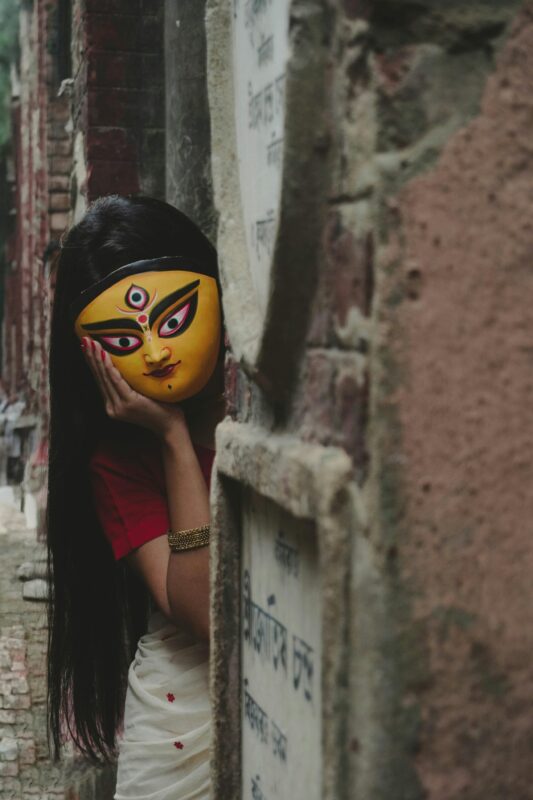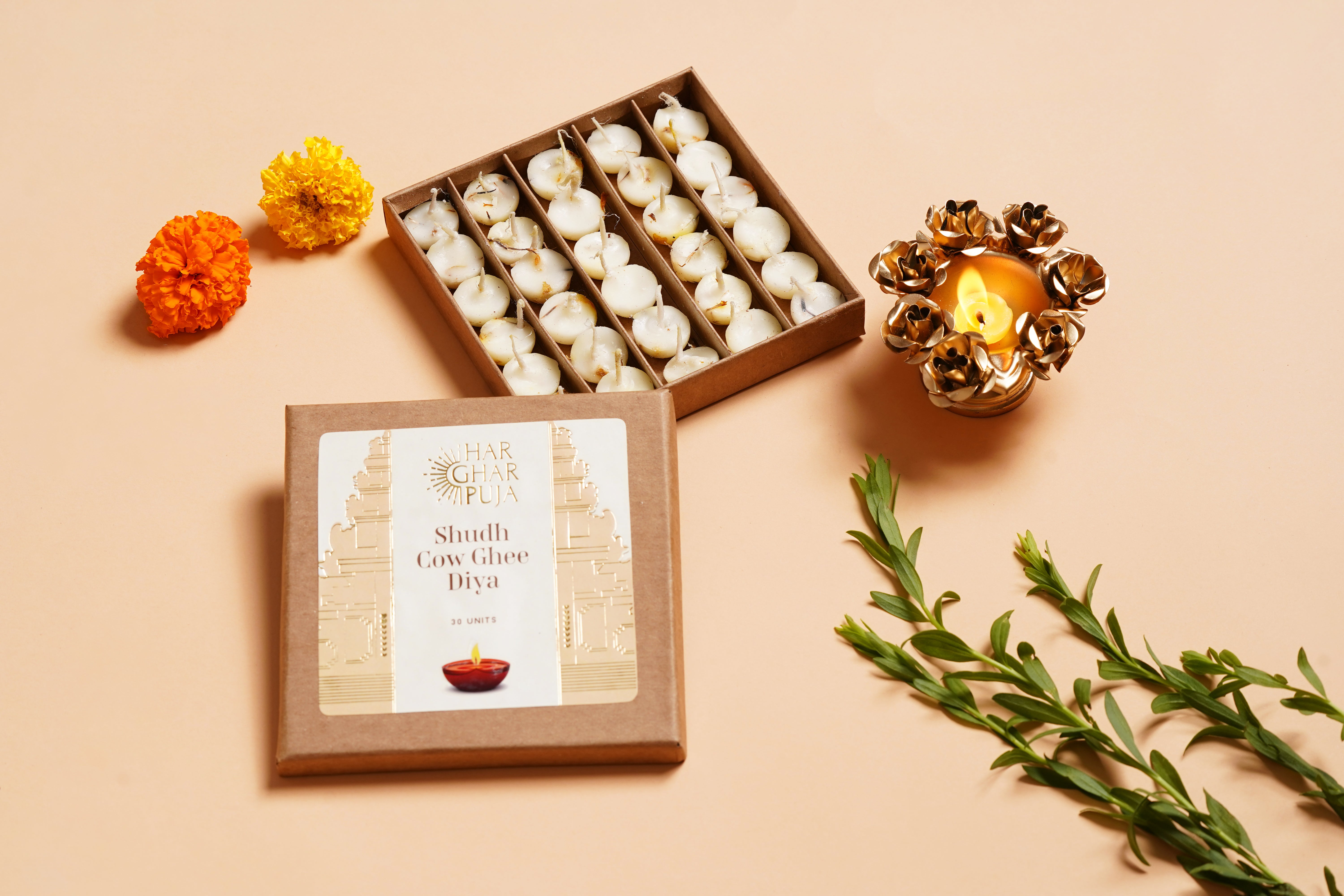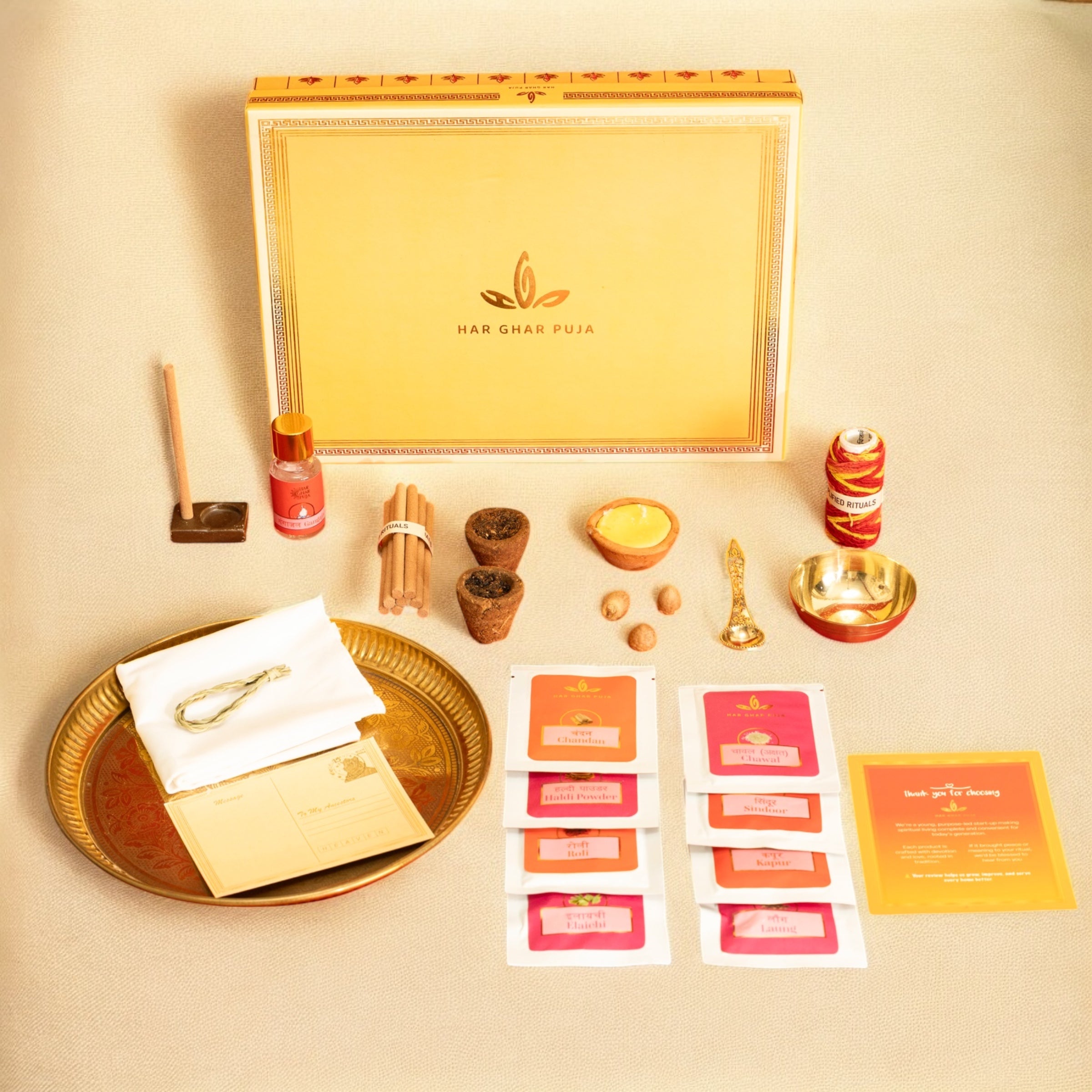Shardiya Navratri is a major Hindu festival dedicated to the worship of Goddess Durga and her nine forms. Celebrated with great enthusiasm across India, each day of Navratri honors a different form of the goddess, with specific rituals and prayers. The ninth day, known as Navami, is particularly special as devotees worship Maa Siddhidatri, the goddess who bestows supernatural powers and spiritual enlightenment. This day marks the conclusion of Navratri and is celebrated with devotion, festivity, and traditional rituals.
Table of Contents
Who is Maa Siddhidatri?
Maa Siddhidatri, the ninth form of Goddess Durga, is revered as the goddess of all siddhis (spiritual powers). Sitting gracefully on a lotus, she embodies purity and power. With four arms, she holds a chakra (discus) in her upper right hand, a conch in her upper left, a mace in her lower right, and a lotus flower in her lower left hand. According to Hindu beliefs, Maa Siddhidatri blessed even Lord Shiva with siddhis. In this form, she governs the planet Ketu, imparting direction, energy, and enlightenment.
Worshiping Maa Siddhidatri is believed to bring wisdom, dispel ignorance, and fulfill all wishes. She represents the culmination of spiritual pursuit, making her worship on the ninth day deeply significant.
The Importance of the Ninth Day of Navratri
The ninth day of Navratri, known as Navami, is a day of divine blessings and completion. Devotees believe that Maa Siddhidatri removes ignorance and darkness, guiding her devotees toward wisdom and self-realization. On this day, many people perform Kanya Puja (the worship of young girls), as these girls are seen as embodiments of the goddess. Families invite young girls to their homes, wash their feet, offer them a sacred thread, and serve them a traditional meal of halwa, puri, and black gram. This ritual is a gesture of gratitude toward the goddess and a prayer for blessings.

Worship Method for the Ninth Day of Navratri
The following steps outline the traditional method to worship Maa Siddhidatri on the ninth day of Navratri:
- Morning Rituals: Begin by waking up early and taking a ritual bath.
- Lighting the Lamp: Place an idol or picture of Maa Siddhidatri and light a lamp in her honor.
- Offerings and Prayers: Offer flowers, sandalwood paste, roli (vermilion), akshat (unbroken rice grains), incense, and sweets to the goddess while meditating on her form.
- Prasad Offering: Offer white-colored sweets or other white prasad, as it is believed to be especially auspicious to Maa Siddhidatri.
- Aarti: Perform the aarti to honor and invoke the blessings of Maa Siddhidatri.
- Seek Blessings: Conclude the puja by seeking her blessings and distributing prasad among family members and friends.
Devotees are encouraged to use white flowers in their offerings, as white is the color associated with Maa Siddhidatri, symbolizing purity and divine energy.

Maa Siddhidatri Beej Mantra
Hreem Kleem Aim siddhaye namah (ह्रीं क्लीं ऐं सिद्धये नम:)
Maa Siddhidatri stuti mantra (मां सिद्धिदात्री स्तुति मंत्र)
Ya Devi sarvabhuteshu Maa Siddhidatri rupena samsthita (या देवी सर्वभूतेषु मां सिद्धिदात्री रूपेण संस्थिता)
Namastasyai namastasyai namastasyai namo namah (नमस्तस्यै नमस्तस्यै नमस्तस्यै नमो नमः)॥
Praying Mantis
Siddha gandharva yakshadyair asurair amarair api (सिद्ध गन्धर्व यक्षाद्यैरसुरैरमरैरपि)
Sevyamana sada bhooyat siddhida siddhidayini (सेव्यमाना सदा भूयात् सिद्धिदा सिद्धिदायिनी)॥

Aarti of Maa Siddhidatri
Jaya Siddhidatri Maa tu siddhi ki data (जय सिद्धिदात्री माँ तू सिद्धि की दाता)।
Tu bhakton ki rakshak tu dason ki mata (तु भक्तों की रक्षक तू दासों की माता)॥
Tera naam lete hi milti hai siddhi (तेरा नाम लेते ही मिलती है सिद्धि)।
Tere naam se man ki hoti hai shuddhi (तेरे नाम से मन की होती है शुद्धि)॥
Kathin kaam siddh karti ho tum (कठिन काम सिद्ध करती हो तुम)।
Jabhi haath sevak ke sir dharti ho tum (जभी हाथ सेवक के सिर धरती हो तुम)॥
Teri pooja mein to na koi vidhi hai (तेरी पूजा में तो ना कोई विधि है)।
Tu Jagadambe daati tu sarv siddhi hai (तू जगदम्बें दाती तू सर्व सिद्धि है)॥
Ravivar ko tera sumiran kare jo (रविवार को तेरा सुमिरन करे जो)।
Teri murti ko hi man mein dhare jo (तेरी मूर्ति को ही मन में धरे जो)॥
Tu sab kaaj uske karti hai poore (तू सब काज उसके करती है पूरे)।
Kabhi kaam uske rahe na adhoore (कभी काम उसके रहे ना अधूरे)॥
Tumhari daya aur tumhari yeh maya (तुम्हारी दया और तुम्हारी यह माया)।
Rakhe jiske sir par Maiya apni chhaya (रखे जिसके सिर पर मैया अपनी छाया)॥
Sarv Siddhi daati, vah hai bhagyashaali (सर्व सिद्धि दाती वह है भाग्यशाली)।
Jo hai tere dar ka hi Ambe sawaali (जो है तेरे दर का ही अम्बें सवाली)॥
Himachal hai parvat jahan vaas tera (हिमाचल है पर्वत जहां वास तेरा)।
Maha Nanda mandir mein hai vaas tera (महा नंदा मंदिर में है वास तेरा)॥
Mujhe aasra hai tumhara hi mata (मुझे आसरा है तुम्हारा ही माता)।
Bhakti hai sawaali tu jiski data (भक्ति है सवाली तू जिसकी दाता)॥

Maa Siddhidatri Devi Stotra
Kanchanabha shankha-chakra-gada-padma-dhara mukutojvalah (कञ्चनाभा शङ्खचक्रगदापद्मधरा मुकुटोज्वलो) ।
Smeramukhi Shivapatni Siddhidatri namo’stute (स्मेरमुखी शिवपत्नी सिद्धिदात्री नमोऽस्तुते) ॥
Patambar paridhanam nanalankar bhushitam (पटाम्बर परिधानां नानालङ्कार भूषिताम्) ।
Nalisthitam nalanarkshi Siddhidatri namo’stute (नलिस्थिताम् नलनार्क्षी सिद्धीदात्री नमोऽस्तुते) ॥
Paramananda-mayi Devi parabrahma paramatma (परमानन्दमयी देवी परब्रह्म परमात्मा) ।
Paramashakti, parambhakti, Siddhidatri namo’stute (परमशक्ति, परमभक्ति, सिद्धिदात्री नमोऽस्तुते) ॥
Vishvakarti, vishvabharti, vishvaharti, vishvaprita (विश्वकर्ती, विश्वभर्ती, विश्वहर्ती, विश्वप्रीता) ।
Vishvaarchita, vishvatita Siddhidatri namo’stute (विश्व वार्चिता, विश्वातीता सिद्धिदात्री नमोऽस्तुते) ॥
Bhukti-mukti-karini bhakta-kashta-nivarini (भुक्तिमुक्तिकारिणी भक्तकष्टनिवारिणी) ।
Bhavasagara-tarini Siddhidatri namo’stute (भवसागर तारिणी सिद्धिदात्री नमोऽस्तुते) ॥
Dharma-artha-kama-pradayini mahamoha-vinashini (धर्मार्थकाम प्रदायिनी महामोह विनाशिनीं) ।
Mokshadayini siddhidayini Siddhidatri namo’stute (मोक्षदायिनी सिद्धीदायिनी सिद्धिदात्री नमोऽस्तुते) ॥
Mata Siddhidatri Devi Kavach
Omkarah paatu shirshomam, Aim beejaam mam hridayo (ओंकार: पातुशीर्षोमां, ऐं बीजंमां हृदयो) ।
Hreem beejaam sada paatu nabho greeho cha paadayo (हीं बीजंसदापातुनभोगृहोचपादयो) ॥
Lalat karnoshrim beejaam paatu kleem beejaam mam netra ghraano (ललाट कर्णोश्रींबीजंपातुक्लींबीजंमां नेत्र घ्राणो) ।
Kapola chibuko hasauh paatu jagat prasootyai mam sarva vadano (कपोल चिबुकोहसौ: पातुजगत्प्रसूत्यैमां सर्व वदनो) ॥
The Nine Goddesses of Navratri
Throughout Navratri, devotees honor the nine forms of Goddess Durga:
- Day 1: Maa Shailputri
- Day 2: Maa Brahmacharini
- Day 3: Maa Chandraghanta
- Day 4: Maa Kushmanda
- Day 5: Maa Skandamata
- Day 6: Maa Katyayani
- Day 7: Maa Kalaratri
- Day 8: Maa Mahagauri
- Day 9: Maa Siddhidatri
Each goddess represents a unique aspect of life and spirituality, offering blessings to devotees who honor them during Navratri.







